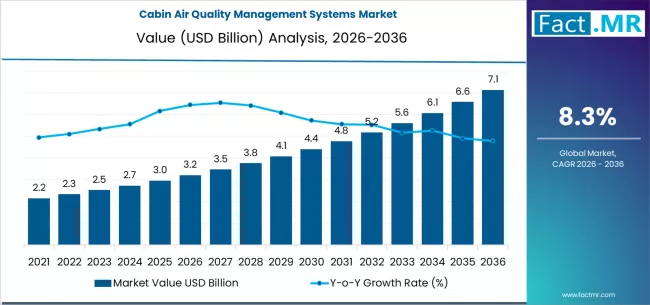Public Policy – UCLA Luskin


Report on Research Addressing Latino Community Marginalization in the Context of Sustainable Development Goals
Executive Summary
Academic research is actively challenging prevailing narratives that diminish the significance of Latino communities. This inquiry provides critical data and analysis to counter systemic marginalization, directly aligning with the core principles of the United Nations Sustainable Development Goals (SDGs). The research underscores the social, economic, and cultural importance of these communities, framing their inclusion as essential for achieving global development targets.
Alignment with Key Sustainable Development Goals (SDGs)
SDG 10: Reduced Inequalities
The primary contribution of this research is its direct impact on SDG 10, which aims to reduce inequality within and among countries. By empirically refuting narratives of insignificance, the work serves to:
- Promote the social, economic, and political inclusion of Latino communities.
- Provide an evidence base for policies designed to eliminate discriminatory practices and foster equal opportunity.
- Challenge stereotypes that are a root cause of social and economic disparities.
Contributions to Inclusive and Just Societies
The research provides a foundational framework for advancing multiple interconnected SDGs focused on creating equitable, sustainable, and just communities.
- SDG 11 (Sustainable Cities and Communities): Findings support the development of inclusive urban planning, ensuring Latino communities have equitable access to housing, essential services, and public spaces.
- SDG 16 (Peace, Justice, and Strong Institutions): The research advocates for responsive, inclusive, and representative institutions by highlighting the need for Latino voices in decision-making processes.
- SDG 4 (Quality Education): It informs the creation of equitable educational curricula that recognize and integrate the contributions of Latino populations, fostering a more inclusive learning environment.
- SDG 8 (Decent Work and Economic Growth): By validating the economic contributions of Latino communities, the research supports policies aimed at ensuring full, productive, and decent employment for all.
Conclusion and Forward Outlook
Policy and Programmatic Implications
This body of research is a critical tool for policymakers, development practitioners, and civil society organizations. Its findings offer a clear mandate to integrate the principles of equity and inclusion into all development efforts. The validation of Latino communities’ importance is not merely an academic conclusion but a necessary precondition for the successful implementation of the 2030 Agenda for Sustainable Development, ensuring that no one is left behind.
Sustainable Development Goals (SDGs) Addressed
SDG 10: Reduced Inequalities
The article directly addresses SDG 10 by focusing on the marginalization and social exclusion of a specific ethnic group. The core statement, “Her research pushes back on the narrative that Latino communities don’t matter,” highlights an active effort to combat discrimination and promote the social value and inclusion of Latino communities, which is central to reducing inequalities.
SDG 16: Peace, Justice and Strong Institutions
The article connects to SDG 16, which aims to build inclusive societies for sustainable development. A narrative that a community “doesn’t matter” is a fundamental barrier to creating an inclusive society where all individuals and groups can participate in public life. The research mentioned in the article supports the goal of ensuring that institutions are more representative and responsive by validating the importance of marginalized communities.
Specific Targets Identified
Under SDG 10: Reduced Inequalities
- Target 10.2: By 2030, empower and promote the social, economic and political inclusion of all, irrespective of age, sex, disability, race, colour, ethnicity, origin, religion or economic or other status. The research described is a direct effort to promote the social inclusion of Latino communities by challenging a narrative that devalues them.
- Target 10.3: Ensure equal opportunity and reduce inequalities of outcome, including by eliminating discriminatory laws, policies and practices and promoting appropriate legislation, policies and action in this regard. The narrative that a community “doesn’t matter” is a form of discriminatory practice that leads to unequal outcomes. The research aims to counteract this practice.
Under SDG 16: Peace, Justice and Strong Institutions
- Target 16.7: Ensure responsive, inclusive, participatory and representative decision-making at all levels. For decision-making to be inclusive, the perspectives and needs of all communities must be recognized as important. The research supports this target by asserting the significance of Latino communities, which is a necessary first step for their meaningful participation.
Indicators for Measurement
The article is very brief and does not provide explicit data or metrics. However, the subject matter implies the relevance of specific indicators that are used to measure progress towards the identified targets.
- Implied Indicator for Target 10.2: The article’s focus on discrimination and marginalization points toward Indicator 10.2.1: “Proportion of people reporting feeling discriminated against or harassed in the previous 12 months on the basis of a ground of discrimination prohibited under international human rights law.” The research aims to address the societal attitudes that lead to such discrimination.
- Implied Indicator for Target 16.7: The effort to push back against a narrative of irrelevance directly relates to perceptions of inclusion. Therefore, Indicator 16.7.2: “Proportion of population who believe decision-making is inclusive and responsive, by sex, age, disability and population group” is a relevant measure. The research seeks to change perceptions and realities regarding the inclusivity of decision-making.
SDGs, Targets, and Indicators Summary
| SDGs | Targets | Indicators (Implied from Article) |
|---|---|---|
| SDG 10: Reduced Inequalities | 10.2: Empower and promote the social, economic and political inclusion of all, irrespective of… ethnicity… | 10.2.1: Proportion of people reporting feeling discriminated against. |
| 10.3: Ensure equal opportunity and reduce inequalities of outcome… by eliminating discriminatory… practices… | The existence and impact of research that challenges discriminatory social narratives. | |
| SDG 16: Peace, Justice and Strong Institutions | 16.7: Ensure responsive, inclusive, participatory and representative decision-making at all levels. | 16.7.2: Proportion of population who believe decision-making is inclusive and responsive, by population group. |
Source: luskin.ucla.edu
What is Your Reaction?
 Like
0
Like
0
 Dislike
0
Dislike
0
 Love
0
Love
0
 Funny
0
Funny
0
 Angry
0
Angry
0
 Sad
0
Sad
0
 Wow
0
Wow
0









































































